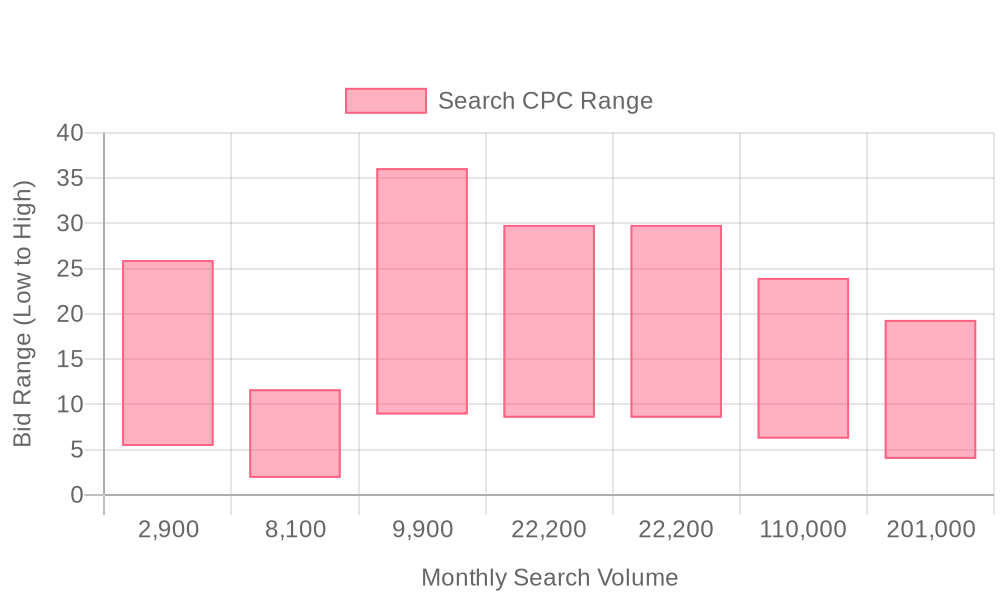
Supercharge your lead generation with a FREE Google Ads audit - no strings attached! See how you can generate more and higher quality leads
Get My Free Google Ads AuditFree consultation

No commitment
Supercharge your lead generation with a FREE LinkedIn Ads audit - no strings attached! See how you can generate more and higher quality leads
Get My Free Google Ads AuditFree consultation

No commitment
Supercharge your lead generation with a FREE Meta Ads audit - no strings attached! See how you can generate more and higher quality leads
Get My Free Google Ads AuditGet My Free LinkedIn Ads AuditGet My Free Meta Ads AuditFree consultation

No commitment
Supercharge your lead generation with a FREE Google Ads audit - no strings attached! See how you can generate more and higher quality leads
Get My Free Google Ads AuditFree consultation

No commitment
In today's real estate market, digital marketing strategies are crucial for success. Among these, Google Ads stands out for its ability to capture high-intent real estate leads. Google Ads allows real estate agencies to reach potential clients who are actively searching for services like home buying, selling, or renting. Integrating Google Ads with offline strategies, such as open houses or direct mail, can substantially enhance your brand's visibility and lead acquisition efforts. This guide aims to provide a step-by-step approach to effectively setting up and optimizing Google Ads campaigns tailored for real estate agencies, ensuring that you stay ahead in the digital marketplace.

Real estate agencies aiming for rapid lead generation must align every campaign element with measurable business outcomes. Precision targeting, seamless CRM integration, and actionable performance data are now prerequisites for running profitable Google Ads for Real Estate Agencies. For deeper insights on setting up and optimizing Google Ads specifically for real estate, see this step-by-step guide to Google Ads for real estate agents.
Success in real estate advertising depends on an agency’s ability to identify, target, and engage the most valuable prospects at the moment of intent. Modern data-driven platforms now empower revenue teams to unify prospect signals, import in-market accounts directly into ad audiences, and ensure no high-potential lead slips through the cracks. Learn more about leveraging real-time audience segments for tailored ad targeting.
By adopting this data-driven, unified approach, real estate agencies transform Google Ads campaigns from simple lead generators into scalable demand engines, consistently fueling the sales pipeline with high-quality, high-intent prospects. To see how your agency can benefit, get started for free with Sona.

Real estate agencies consistently face the challenge of connecting with serious buyers and sellers at the exact moment they are ready to take action. Google Ads provides a direct line to these high-intent audiences, ensuring every marketing dollar is spent reaching individuals actively searching for properties or agents in local markets. Leveraging advanced data unification and behavioral analytics, agencies can pinpoint which website visitors represent valuable prospects instead of anonymous traffic, fueling more precise Google Ads targeting and higher engagement rates. For a deeper dive into setting up and optimizing Google Ads for real estate marketing, review this step-by-step guide for real estate agents.
Looking to transform how your agency targets, engages, and converts high-value clients? Get started for free with Sona.

Real estate agencies operate in a market where timing and intent drive success. Effective digital marketing strategies depend on selecting the right campaign types to engage high-value prospects and maximize return on advertising spend. Leveraging Sona Identification allows teams to reveal which companies and people are engaging with your ads and website—even when they remain anonymous—empowering timely, relevant outreach.
This strategic blend of campaign types empowers real estate agencies to build brand authority, deliver relevant offers, and maintain a persistent presence with their most valuable prospects. If you’re ready to optimize your campaigns, get started for free with Sona and see how unified audience insights drive better results.

Growth in real estate digital marketing hinges on identifying segments with high conversion potential before competitors saturate them. Teams that systematically surface and act on these untapped opportunities consistently outperform in both lead generation and cost efficiency. For marketers looking to streamline this process, using real-time audience insights can help pinpoint high-intent segments and dynamically adapt campaigns as opportunities arise.

Real estate agencies can unlock superior campaign performance by segmenting audiences with precision, turning broad targeting into tailored, high-conversion marketing. Sharper segmentation enables teams to match unique buyer and seller profiles with relevant offers, messaging, and creative, boosting both lead quality and engagement throughout the funnel. For more strategies, explore the ultimate guide to account-based marketing.

| Industry | Keyword | Monthly Search Volume | Competition Level | Low Bid | High Bid |
| Real Estate Agencies | estate agents near me | 2900 | LOW | 5.4 | 25.94 |
| Real Estate Agencies | real estate agencies | 8100 | LOW | 1.88 | 11.67 |
| Real Estate Agencies | find a realtor | 9900 | MEDIUM | 8.88 | 36.1 |
| Real Estate Agencies | best real estate agent near me | 22200 | MEDIUM | 8.52 | 29.82 |
| Real Estate Agencies | best realtor near me | 22200 | MEDIUM | 8.52 | 29.82 |
| Real Estate Agencies | real estate agents near me | 110000 | LOW | 6.21 | 23.97 |
| Real Estate Agencies | realtors near me | 201000 | MEDIUM | 3.98 | 19.33 |
Effective keyword strategy forms the backbone of successful Google Ads for Real Estate Agencies. Agencies that master search intent and precise term selection consistently attract high-intent buyers and sellers, outperforming competitors relying on generic advertising. By focusing on tailored queries, marketers can ensure their budgets drive measurable real estate lead generation rather than passive browsing. For further guidance on keyword selection and campaign structure, explore this step-by-step guide.
Top-performing campaigns invest heavily in high-converting terms such as "homes for sale near me," "luxury real estate," and "real estate agencies near me." These keywords capture active searchers—potential clients ready to engage with an agent or schedule a viewing. Segmenting terms by intent (buyer vs. seller, residential vs. luxury, local vs. regional) enables smarter audience segmentation and message personalization, a critical lever for real estate digital marketing.
Strategic use of negative keywords, such as excluding "real estate jobs" or unrelated career search terms, prevents wasted spend on non-revenue traffic. This proactive filtering ensures every click is more likely to be a prospective client, not a job seeker or unrelated visitor. When negative keywords are updated dynamically based on campaign performance, agencies minimize irrelevant impressions and further improve conversion rates.
Keyword strategy becomes even more powerful when integrated with identity and intent data. By linking keyword triggers to real-time visitor identification, marketers can move beyond anonymous clicks and pinpoint which companies or individuals are searching for specific property types. With this intelligence, budget allocation shifts automatically toward the highest-converting audiences as they move through the funnel. This approach transforms Google Ads targeting from static keyword lists to adaptive, data-driven audience building—driving incremental gains in both ROI and lead quality for real estate agency marketing.
Ready to turn your keyword strategy into qualified pipeline? Get started for free with Sona.
Effective real estate agency marketing with Google Ads begins with a tailored keyword strategy that reflects the full scope of property buying and selling journeys. Identifying intent-driven phrases such as "luxury condos for sale in [city]" or "sell my home fast" enables marketers to capture high-quality leads actively searching for solutions. By leveraging intent signals, revenue teams can continuously fine-tune keyword lists according to real-time market demand, surfacing terms that align with shifting buyer behavior and emerging trends in local property markets. To discover the most effective real estate keywords and targeting tips, review this list of high-performing real estate keywords. This approach not only improves targeting precision but ensures that every ad dollar is directed toward audiences most likely to convert.
Ad copy must do more than inform—it should differentiate. Highlighting unique selling propositions like neighborhood expertise, industry certifications, or exclusive listings gives real estate agencies a competitive edge in crowded search results. Top-performing teams use CRM insights to personalize messaging, dynamically adjusting headlines or value propositions based on lead stage and property interest. For more strategies on creating effective ad campaigns, explore our actionable playbooks. This data-driven approach ensures that every impression resonates, increasing both click-through rates and downstream conversion for real estate lead generation.
Landing pages serve as the critical handoff from ad engagement to lead capture. For Google Ads for Real Estate Agencies, high-impact landing pages must align tightly with the promise made in the ad copy, providing a seamless user experience that encourages immediate action. Features such as property image galleries, interactive maps, and clear calls to action like "Schedule a Viewing" or "Request a Home Valuation" help move prospects further down the funnel. Integrating visitor-level data enables marketers to display personalized property recommendations or pre-fill lead forms for known contacts, reducing friction and increasing submission rates. For more guidance on optimizing landing pages, visit our blog for marketing best practices.
Continuous improvement is vital for scaling real estate digital marketing. Modern revenue teams go beyond basic reporting by using advanced tools to enrich CRM profiles, track offline and online intent signals, and attribute conversions across touchpoints. For additional strategies and industry benchmarks, see these Google Ads benchmarks for real estate. Real-time identification of website visitors and in-market behaviors allows agencies to dynamically adjust bids, shift budget to high-converting property segments, and suppress audiences as they progress through the sales funnel. With seamless CRM and ad platform sync, enriched audiences can be pushed to Google Ads for more timely and relevant retargeting, while closed-loop attribution provides a true picture of ROI from both digital and offline interactions. This unified approach to data and activation drives higher efficiency and measurable growth in PPC for real estate. To accelerate your success, get started for free with Sona.
Real estate agencies thrive when their brand consistently engages prospects across channels and touchpoints. Expanding Google Ads for Real Estate Agencies demands a mix of creative outreach, local relevance, and data-driven tactics to capture attention and convert interest into qualified leads. For foundational guidance on campaign setup and optimization, explore this step-by-step guide to Google Ads for real estate. To deepen your understanding of advanced tactics, visit the Sona blog.
Ready to elevate your Google Ads strategy? Get started for free with Sona.
In conclusion, leveraging Google Ads for your real estate agency can significantly enhance your online presence and lead generation efforts. By understanding the intricacies of targeting, ad creation, and budget management, you can optimize your campaigns to attract the right audience and maximize your return on investment. The key to success lies in combining strategic planning with data-driven insights to refine your approach continuously.
Throughout this article, we've explored the common challenges faced by real estate agencies when using Google Ads, such as high competition and budget constraints. We discussed essential strategies, like keyword optimization and customized ad copy, that can help overcome these obstacles. By applying these tactics, you position your agency to stand out in a crowded market and attract high-quality leads.
Imagine transforming your real estate business with a more refined and effective advertising strategy. By implementing the solutions discussed, you're not only increasing visibility but also fostering a connection with potential clients who are genuinely interested in your services. The opportunity to revolutionize your marketing approach is within your grasp, and the time to act is now.
Ready to take your real estate marketing to the next level? Start for free to experience our platform's capabilities and see firsthand how it can provide actionable insights to drive your success.
Best practices include defining clear objectives, leveraging keyword and audience targeting with location-specific terms, aligning ad creatives with audience segments, and continuously optimizing performance by monitoring campaign metrics.
Real estate agencies can generate leads by integrating Google Ads with CRM systems, targeting high-intent keywords, and using dynamic audience segments to ensure ads reach prospects actively considering a transaction.
Effective Google Ads types for real estate include search campaigns for high-intent queries, display ads for brand visibility, video ads for engagement, and remarketing campaigns to re-engage previous visitors.
The cost varies based on factors like campaign objectives, keyword competition, and targeting strategies, but optimizing ad spend through data-driven audience targeting can maximize ROI.
To create a successful campaign, start with targeted keyword lists, develop compelling ad copy, design high-impact landing pages, and apply data-driven optimizations to continuously improve performance.
Join results-focused teams combining Sona Platform automation with advanced Google Ads strategies to scale lead generation

Connect your existing CRM

Free Account Enrichment

No setup fees
No commitment required

Free consultation

Get a custom Google Ads roadmap for your business
Join results-focused teams combining Sona Platform automation with advanced Meta Ads strategies to scale lead generation

Connect your existing CRM

Free Account Enrichment

No setup fees
No commitment required

Free consultation

Get a custom Google Ads roadmap for your business
Join results-focused teams combining Sona Platform automation with advanced LinkedIn Ads strategies to scale lead generation

Connect your existing CRM

Free Account Enrichment

No setup fees
No commitment required

Free consultation

Get a custom Google Ads roadmap for your business
Join results-focused teams using Sona Platform automation to activate unified sales and marketing data, maximize ROI on marketing investments, and drive measurable growth

Connect your existing CRM

Free Account Enrichment

No setup fees
No commitment required

Free consultation

Get a custom Google Ads roadmap for your business
Over 500+ auto detailing businesses trust our platform to grow their revenue
Join results-focused teams using Sona Platform automation to activate unified sales and marketing data, maximize ROI on marketing investments, and drive measurable growth

Connect your existing CRM

Free Account Enrichment

No setup fees
No commitment required

Free consultation

Get a custom Google Ads roadmap for your business
Over 500+ auto detailing businesses trust our platform to grow their revenue
Join results-focused teams using Sona Platform automation to activate unified sales and marketing data, maximize ROI on marketing investments, and drive measurable growth

Connect your existing CRM

Free Account Enrichment

No setup fees
No commitment required

Free consultation

Get a custom Google Ads roadmap for your business
Over 500+ auto detailing businesses trust our platform to grow their revenue
Our team of experts can implement your Google Ads campaigns, then show you how Sona helps you manage exceptional campaign performance and sales.
Schedule your FREE 15-minute strategy sessionOur team of experts can implement your Meta Ads campaigns, then show you how Sona helps you manage exceptional campaign performance and sales.
Schedule your FREE 15-minute strategy sessionOur team of experts can implement your LinkedIn Ads campaigns, then show you how Sona helps you manage exceptional campaign performance and sales.
Schedule your FREE 15-minute strategy sessionOur team of experts can help improve your demand generation strategy, and can show you how advanced attribution and data activation can help you realize more opportunities and improve sales performance.
Schedule your FREE 30-minute strategy sessionOur team of experts can help improve your demand generation strategy, and can show you how advanced attribution and data activation can help you realize more opportunities and improve sales performance.
Schedule your FREE 30-minute strategy sessionOur team of experts can help improve your demand generation strategy, and can show you how advanced attribution and data activation can help you realize more opportunities and improve sales performance.
Schedule your FREE 30-minute strategy sessionOur team of experts can help improve your demand generation strategy, and can show you how advanced attribution and data activation can help you realize more opportunities and improve sales performance.
Schedule your FREE 30-minute strategy session





Launch campaigns that generate qualified leads in 30 days or less.
